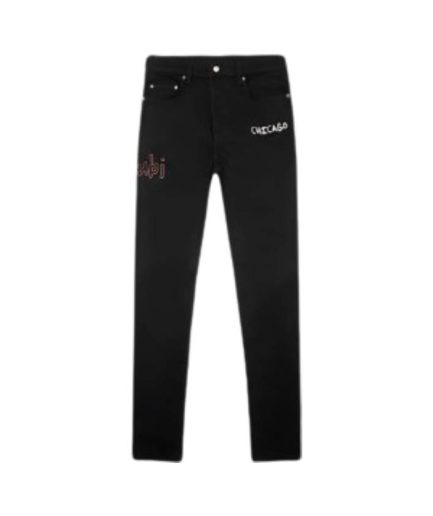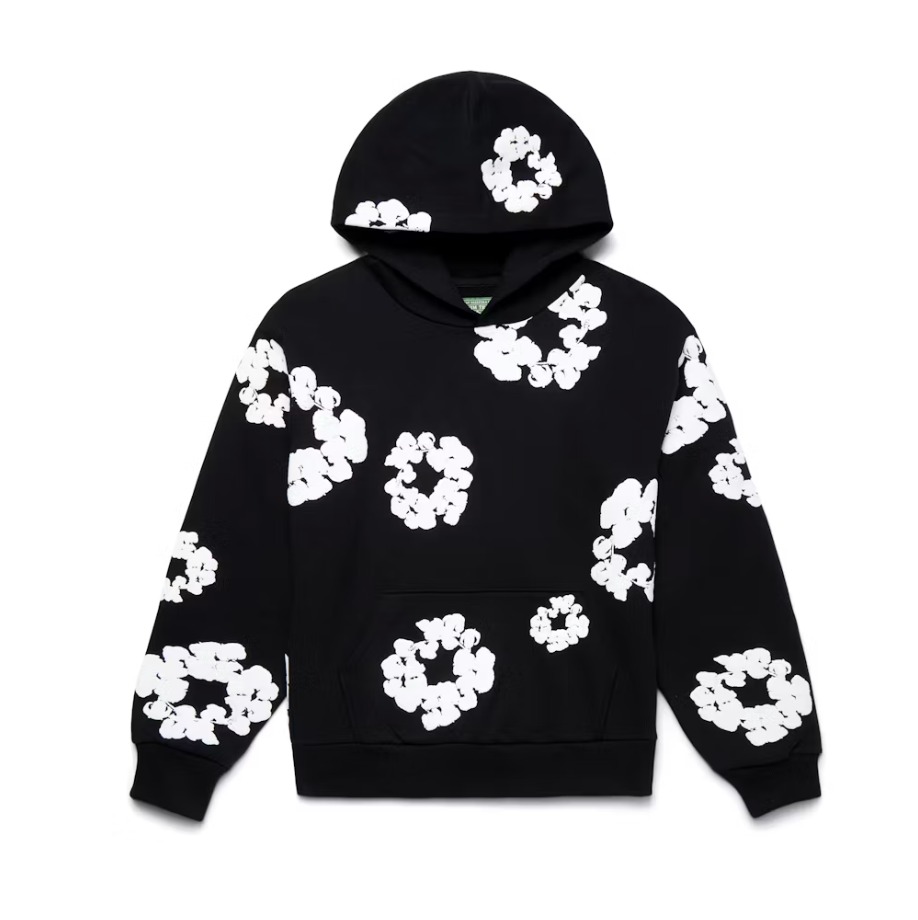Introduction
Ksubi isn’t just another streetwear brand—it’s an identity, a culture, and a movement carried by celebrities and embraced by fans with a passion for bold, rebellious fashion. What started as a small Australian label quickly transformed into one of the most influential global names in the streetwear world, and much of its popularity stems from the way celebrities style and promote it, intentionally or not. Fans follow these looks not simply because celebrities wear them, but because of what those looks represent: freedom, individuality, personality, and lifestyle. From musicians to actors to online influencers, Ksubi Clothing fan base is driven by people seeking a raw, confident aesthetic that stands out in every room.
Ksubi fans are not just buying clothes—they’re buying a feeling. And when they see that feeling reflected in the celebrities they admire, from Travis Scott to Bella Hadid, the connection becomes even more powerful. A celebrity wearing Ksubi validates the brand’s cool factor, and fans naturally want to tap into that energy. This article explores why Ksubi enthusiasts are so drawn to celebrity fashion choices, how those choices impact buying behavior, and what this trend means for the brand’s future.
The Cultural Power of Ksubi
Ksubi’s cultural power didn’t emerge overnight. It began as a rebellious, underground movement in Australia, created by designers who wanted to challenge the traditional fashion landscape. From the start, Ksubi positioned itself as the brand for outsiders, creatives, and rule-breakers—people who weren’t afraid to experiment with edgy silhouettes, distressed denim, and loud prints that refused to blend in. What makes Ksubi culturally magnetic is that it never tries to appeal to everyone. Instead, it has always catered to those who want to stand out, and ironically, that very exclusivity is what drew the masses in. Fans loved the idea of wearing something unapologetically bold, something that looked like it was ripped straight out of a rockstar’s closet.
Another reason the brand holds such cultural power is its consistency. Ksubi has never watered down its approach to fit trends; instead, it creates trends. The brand’s signature elements—scribbled logos, raw hems, loud graphics, and distinctive denim fits—have stayed true to their roots. This consistency creates trust, and that trust builds loyalty. Fans connect deeply with brands that stand firm in their identity, and Ksubi does that flawlessly. Every piece feels intentional, crafted with attitude and confidence, which is exactly what its audience craves.
But what truly amplifies Ksubi’s cultural clout is its place in modern urban fashion. Streetwear has become more than clothing; it’s a language, a badge of belonging, and Ksubi speaks that language fluently. It resonates with people who live life loudly and express themselves visually. Whether it’s worn in nightlife scenes, underground music venues, or featured in street-style photography, the brand naturally gravitates toward environments where individuality thrives. This connection to culture—real culture, not curated or corporate—makes Ksubi stand out in a sea of fashion labels trying to chase authenticity. Fans follow it not because it’s trending, but because it represents something real, something raw, something uniquely theirs.
Why Fans Imitate Celebrities
Fans imitate celebrities for reasons that go far deeper than simple admiration. At the core, celebrity influence taps into basic human psychology—our need for belonging, validation, and identity. When someone sees their favorite celebrity wearing Ksubi, it triggers an emotional response that says, “If they wear it, it must be cool. And if I wear it, I can feel a little more like them.” This isn’t superficial; it’s a natural part of how humans navigate social hierarchies and self-expression. Celebrities represent ideals—confidence, success, beauty, influence—and clothing becomes a shortcut to embodying those ideals. By recreating celebrity outfits, fans feel connected to a lifestyle they admire, even if only symbolically.
Ksubi in particular fits perfectly into this dynamic because it’s a brand that celebrities don’t just wear—they embody. When someone like A$AP Rocky or Kendall Jenner wears Ksubi Jeans, it’s not a promotional moment; it’s a genuine reflection of their personal style. That authenticity makes fans trust the choices even more. People can tell when a celebrity truly loves a brand versus when they’re just modeling it for a paycheck. With Ksubi, the relationship feels organic, which strengthens the desire to imitate.
Another factor is the aspirational power of streetwear. Unlike luxury fashion houses that feel inaccessible to most people, Ksubi strikes a balance between premium quality and realistic availability. Fans can actually buy the same pieces their favorite celebrities wear without needing a millionaire’s budget. That accessibility creates a sense of shared style, as if wearing the same ripped denim or oversized hoodie bridges the gap between fan and star. Clothing becomes a form of social alignment—a way to step into the same cultural lane as the celebrity they admire.
Social media amplifies this even further. Platforms like Instagram and TikTok give fans instant access to celebrity outfits, making inspiration unavoidable. Every paparazzi shot, every airport outfit, every backstage photo becomes a style roadmap. And because Ksubi pieces are so visually striking, they grab attention fast. Fans don’t just imitate celebrities for fun—they do it because it helps them craft their own identity, using celebrities as a blueprint for confidence, expression, and style evolution.
Ksubi’s Celebrity Endorsement Legacy
Ksubi’s relationship with celebrity influence goes beyond simple product placement—it’s a legacy built over years of authentic adoption by some of the biggest names in entertainment, fashion, and music. Unlike many brands that rely on orchestrated marketing campaigns or explicit sponsorships, Ksubi earned its celebrity following naturally. From the early 2000s, artists and actors gravitated toward the brand because it encapsulated an energy that matched their personalities: rebellious, unconventional, a little chaotic, but undeniably stylish. When early adopters like Kanye West, Snoop Dogg, and members of the indie-rock scene began wearing Ksubi, the brand’s identity started to crystallize in a uniquely cultural way.
These early celebrity partnerships weren’t commercials—they were moments. Fans saw backstage photos, candid street snaps, and music videos where Ksubi denim and graphic tees appeared effortlessly, like they were a natural extension of the celebrity themselves. This kind of organic exposure is the most powerful form of endorsement because it doesn’t come across as manufactured. Fans believed the celebrities genuinely chose Ksubi because it reflected who they were—and they were right. That authenticity built trust and sparked curiosity among fans, especially young adults who connected with the rebellious aesthetic.
The ripple effect of these early endorsements still influences fans today. Each generation has its own set of Ksubi-wearing icons. Modern artists like Travis Scott, Playboi Carti, Billie Eilish, and Hailey Bieber continue to push the brand into new style arenas while keeping its rebellious edge intact. Every time a celebrity is photographed in Ksubi—whether it’s a distressed denim moment or a statement hoodie—it sends a message: this brand is still relevant, still edgy, and still connected to the pulse of pop culture.
These celebrity endorsements anchor Ksubi’s reputation in authenticity and coolness. When fans see their favorite artists wearing Ksubi without any flashy promotions, it creates a genuine sense of respect. The brand feels like part of a bigger cultural movement rather than a fashion label chasing trends. This legacy of authentic celebrity connection is why fans continue to look to their style icons for guidance—because they know those choices reflect real taste, not forced endorsements.
How Social Media Fuels Ksubi’s Hype
Social media is the engine that keeps Ksubi’s hype alive, accelerating every celebrity moment into a global fashion trend within hours. Platforms like Instagram, TikTok, and Pinterest aren’t just spaces for posting photos—they’re digital runways where influencers, celebrities, and everyday users create style inspiration that spreads instantly. For a visually striking brand like Ksubi, this ecosystem is perfect. The distressed denim, bold graphics, and distinctive silhouettes photograph beautifully, making them prime content for feeds curated around aesthetic fashion. Fans scrolling through their timelines don’t just see clothes; they see style identities they want to emulate.
TikTok, especially, has become a major driver of Ksubi’s cultural relevance. One quick video of someone styling Ksubi jeans or recreating a celebrity outfit can rack up millions of views overnight. These short-form clips have turned fashion into entertainment, and Ksubi fits seamlessly into that fast-moving world. The brand’s signature pieces—particularly its denim—often become “must-have” items once they go viral. Thousands of users then rush to recreate the look, sparking massive demand and propelling the brand into ongoing spotlight cycles. It’s a powerful chain reaction: one influential post leads to thousands of inspired recreations, pushing Ksubi deeper into mainstream consciousness.
Instagram, on the other hand, fuels the aspirational side of Ksubi. Celebrities and influencers often post curated, high-quality photos featuring the brand, and these images act as unofficial advertisements. Unlike traditional marketing campaigns, these posts feel personal and intimate, giving fans the impression that they’re peeking into someone’s real wardrobe. Even the paparazzi do part of the work by capturing candid shots of celebrities running errands in Ksubi denim or oversized hoodies. These moments instantly turn into viral style references because they show the clothes in everyday settings—relatable yet still aspirational.
Social media also fosters community, which strengthens fan loyalty. People who love Ksubi often form online spaces—hashtags, comment groups, fan pages—where they share outfit ideas and latest drops. This sense of belonging makes the brand feel like more than clothing; it becomes part of a shared culture. Fans don’t just follow celebrities—they follow each other, building a collective identity around the brand. Social media transforms Ksubi from fabric into a movement, and fans eagerly participate because it allows them to express themselves while staying connected to the bigger cultural conversation. Read More….


